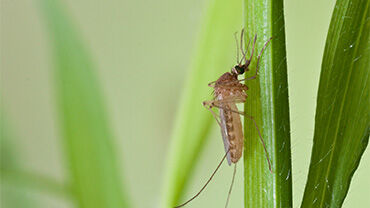Surveillance, prevention and control of dengue in Madeira: lessons learnt after the 2013 ECDC mission
New report provides recommendations for surveillance, prevention and control of dengue in Madeira, following the ECDC mission to Madeira in March 2013.
From 26 September 2012 to 3 March 2013, the autonomous province of Madeira, Portugal, reported its first dengue outbreak, with 2 168 probable and 1080 confirmed dengue cases. Seventy-eight patients have been diagnosed in other European countries with dengue infection after returning from Madeira, as of 3 February 2013. There were no severe clinical forms or fatalities during this outbreak.
The Aedes (Ae.) aegypti mosquito, which is an invasive mosquito in Europe and the main dengue vector, is present in Madeira since 2005. The archipelago of Madeira is well connected with tropical countries where dengue is endemic. This makes possible both the reintroduction of the dengue virus and the establishment of new mosquito populations from tropical endemic areas.
In 2012-2013, ECDC conducted two missions to Madeira: the first mission in October 2012, to set up a specific epidemiological system for surveillance of dengue, and the second one, in March 2013 - to assess the already implemented response measures and activities and support the planning of new measures based on the current situation and possible future scenarios.
During the second mission, the experts concluded that the establishment of Ae. aegypti mosquito in Madeira and the dengue outbreak that occurred in 2012–2013 emphasise the necessity of a contingency plan covering vector-borne disease outbreaks, and efficient vector-control and surveillance measures. Sustainable vector surveillance system and the implementation of long-term strategies for vector control need to be introduced; vector surveillance needs to be maintained to monitor the geographical spread of the vector and to insure proper evaluation of control activities. Possible outbreak scenarios were discussed with local health authorities to be included in an intersectoral contingency plan – the plan describes response activities in relation to the phases of an outbreak.
The report gives a comprehensive overview of the necessary measures to be undertaken in relation to the epidemiological surveillance and the contingency plan with activities during a vectorborne disease outbreak – supported by a detailed gap analysis with proposed actions, human resources analysis, planning of tasks and outline of a simulation exercise. Finally, the report provides timeframe of the necessary actions, distinguishing long-, medium-, short-term actions.
Read the report: Dengue outbreak in Madeira, Portugal, March 2013







